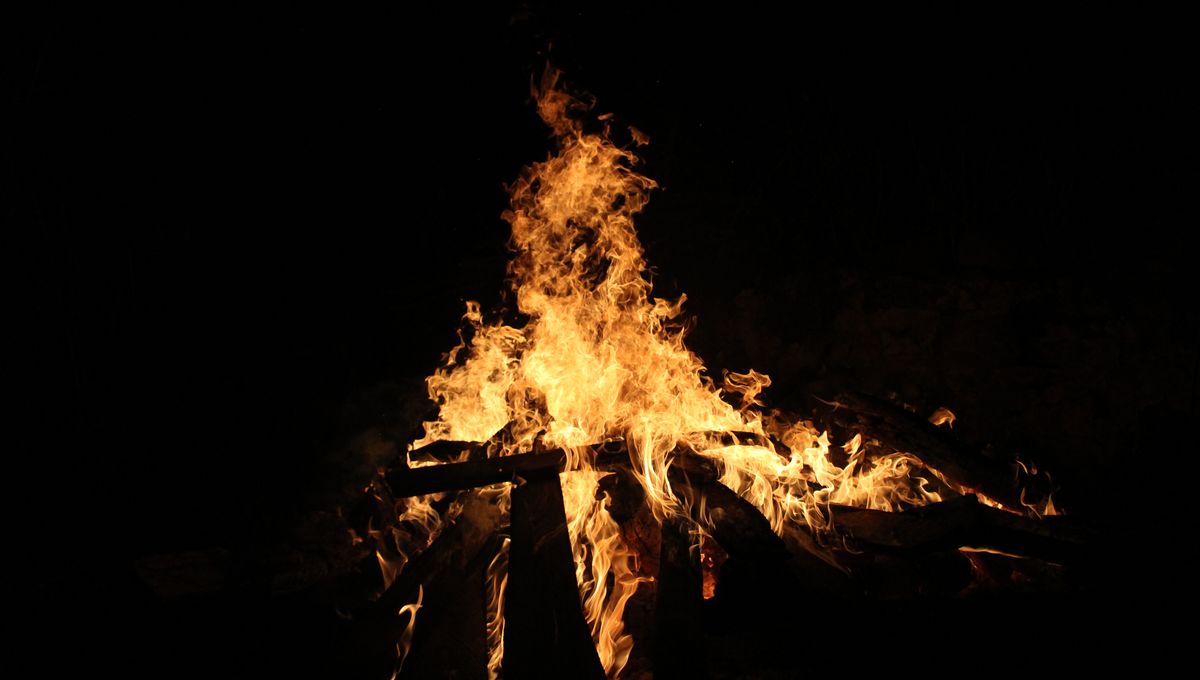
It is arguable that the discovery of fire is one of the most important developments in the history of our species, if not the most important one. Our mastery over this elemental force has shaped so much of our world, allowing us to prepare food, extend daylight hours, warm homes in the cold, and manufacture tools. Without fire, we would never have had the Industrial Revolution, basic medicines, or shadow puppets. At the same time, fire is now arguably one of the most significant forces at play in our increasingly overheating world, so its impacts extend beyond its initial discovery.
But what sparked this early relationship between humans and fire? New research suggests that it wasn’t necessarily to cook food but rather to preserve it for longer.
This has long been the subject of heated debate (I couldn’t resist). For the most part, scholars do not believe there was one single sudden moment of discovery in this history, but rather it was a messy story where mastery over fire developed gradually from the early Pleistocene onwards. This early use, they believe, was mostly to cook plants and meat for food, which was a critical adaptation in Homo erectus – it lead to a smaller digestive system and an increase in brain size. This is known as the “cooking hypothesis”.
However, more recent work has started to question this hypothesis, suggesting fire was not used to cook meat per se, but rather to preserve it for longer periods of time. This, it is argued, helped keep it safe from predators or scavengers as well.
This new insight fits into a broader unified theory developed by the same researchers from Tel Aviv University. Their theory explains many prehistoric phenomena based on early human dependence on calories from large animals, as well as the continuous decline in the size of animals hunted during these periods.
“The origins of fire use is a ‘burning’ topic [see, it’s not just me making these puns] among prehistory researchers around the world. It is generally agreed that by 400,000 years ago, fire use was common in domestic contexts—most likely for roasting meat, and perhaps also for lighting and heating,” study author Dr Miki Ben-Dor of the Alkow Department of Archaeology and Ancient Near Eastern Cultures at Tel Aviv University explained in a statement.
“However, there is controversy regarding the preceding million years, and various hypotheses have been put forward to explain why early humans began using fire. In this study, we sought to explore a new perspective on the issue.”
For early humans, fire was not a given. In fact, most archaeological sites that date to earlier than 400,000 years ago lack any evidence that fire was used there. However, in the few sites where signs of fire are present, there are no burnt bones or evidence of roasted meat.
“We understand that early humans at that time—mostly Homo erectus—did not use fire regularly, but only occasionally, in specific places and for special purposes,” Ben-Dor explained.
“The process of gathering fuel, igniting a fire, and maintaining it over time required significant effort, and they needed a compelling, energy-efficient motive to do so. We have proposed a new hypothesis regarding that motive.”
Ben-Dor and colleagues reviewed the existing literature on all known prehistoric sites – there are nine – dated between 1.8 million and 800,000 years ago where evidence of fire use was found. The sites include Gesher Benot Ya’aqov and Evron Quarry in Israel, six sites in Africa, and one site in Spain. The team also used ethnographic studies of contemporary hunter-gatherers to align their behavior to conditions prevalent in the ancient world.
“We examined what the nine ancient sites had in common, and found that all contained large quantities of bones from large animals—mostly elephants, but also hippopotamuses, rhinoceroses, and others,” said Ben-Dor added.
“From previous studies, we know that these animals were extremely important to early human diets and provided most of the necessary calories. The meat and fat of a single elephant, for example, contain millions of calories, enough to feed a group of 20–30 people for a month or more.”
So in this context, the body of an elephant or hippo was a treasure for meat and fat, which needed to be protected from scavengers, predators, and bacteria.
The team’s assessment of the findings and calculations of the significant energetic advantages to preserved meat and fat led them to a new conclusion: fire served two vital purposes – it guarded large game from other animals, and it preserved the meat through smoking and drying.
“In this study, we propose a new understanding of the factors that motivated early humans to begin using fire: the need to safeguard large hunted animals from other predators, and to preserve the vast quantity of meat over time,” study author Professor Ran Barkai, also from Tel Aviv University, explained.
“It is likely that once the fire was produced for these purposes, it was also occasionally used for cooking—at zero marginal energetic cost. Such use may explain evidence of fish roasting from around 800,000 years ago at Gesher Benot Ya’aqov.”
The approach, the authors maintain, fits well with a global theory they have been developing, which explains significant prehistoric phenomena as adaptations to the hunting and consumption of large animals, followed by their gradual disappearance. This resulted in the need for early humans to derive adequate energy from exploiting smaller animals.
The study is published in Frontiers in Nutrition.
Source Link: Why Did Humans Start Using Fire? New Theory Suggests It Wasn't To Cook Food